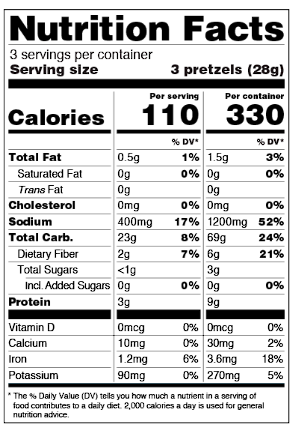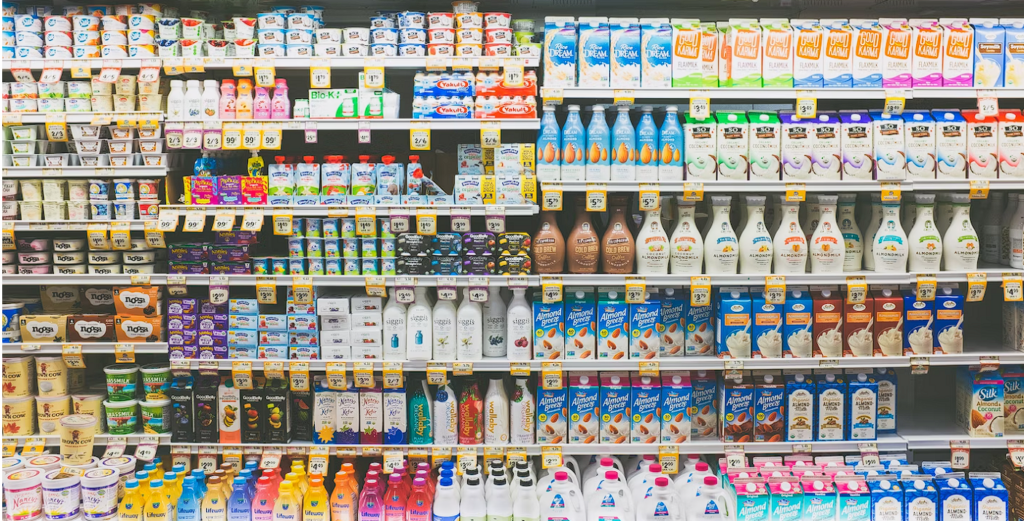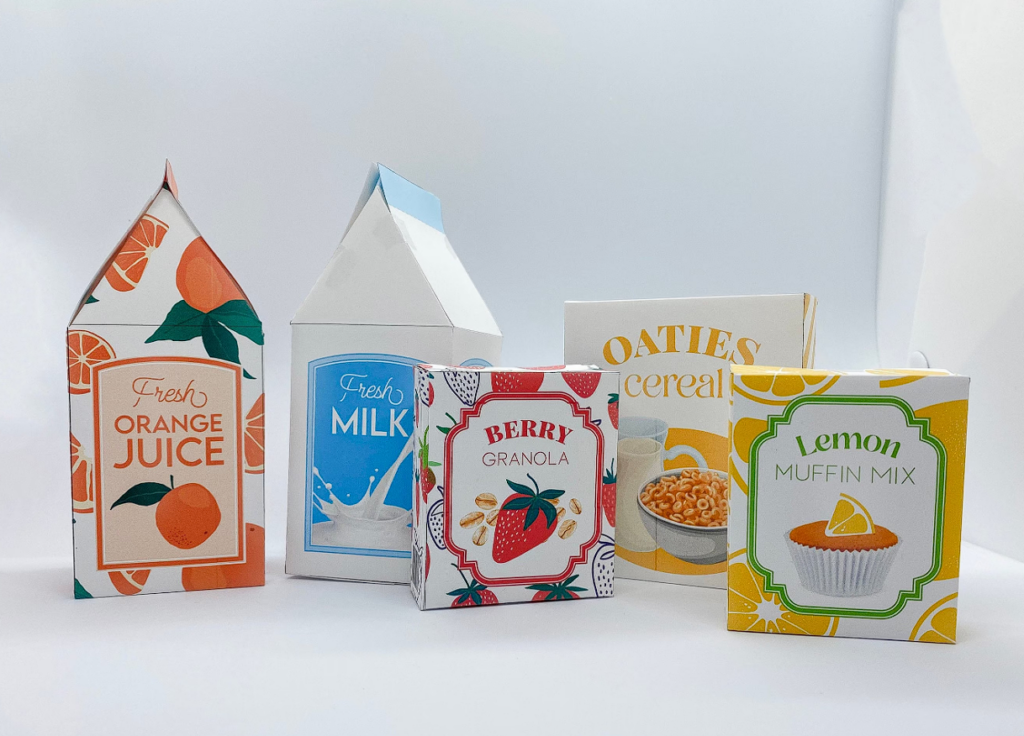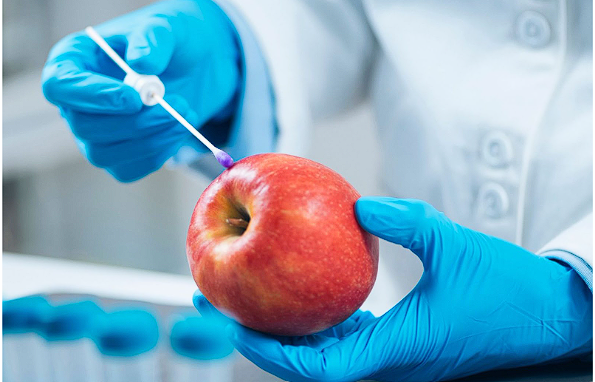- Food Startup Funding: Do you need investors to build a successful food or beverage business? - February 29, 2024
- Explaining Food Certifications & Labeling: Organing, Non-GMO, Halal, Kosher, & More! - February 29, 2024
- Explaining the Meaning of MOQ - February 29, 2024
Food scientists are an integral part of the food industry since they ensure the safety, quality, and nutritional value of food products. Have you got the recipe for a killer sauce or snack that you always thought should be on the shelves of supermarkets nationwide? A food scientist can help make those dreams come true.
This article will explore what food scientists do and how they support food product development. It will also review the importance of finding a food manufacturer with the right team of food scientists to ensure that your food products meet the highest standards of quality and safety.
What is a Food Scientist?
Food science encompasses many different disciplines to understand and improve food processes when manufacturing food and beverage products. Food scientists use their knowledge of chemistry, biology, and engineering to guarantee the safety, quality, and nutritional value of food, as well as to create new food products that meet the changing needs and preferences of consumers.
They work in a variety of settings, including food production facilities and research laboratories, and play a crucial role in ensuring the availability of safe, healthy, and delicious food for people around the world.
The Role of Food Scientists in the Food Industry
Food scientists are as essential to the food industry as investors, marketers, and customers. Here are some of their biggest roles in food and beverage production.
Recipe & Ingredient Development

Food scientists aren’t chefs: they’re scientists with a deep understanding of the chemical and physical properties of food. They use this knowledge not only to design recipes but also to understand the manufacturing process from when the product is an idea to when it hits the shelves. They help food brands develop and tweak recipes and ingredients that are not only tasty but also safe and healthy to consume.
Food scientists can also create new ingredients or improve existing ones by using their expertise in food chemistry and processing. They can also identify the best ways to source and combine ingredients to maximize flavor, texture, and nutritional value. This can impact the cost of production, and ultimately the product’s purchase price.
Scaling Up Food Production
Food scientists use their expertise to develop processes that increase efficiency and quality while maintaining food safety. They analyze the composition of raw materials, develop new formulations and recipes, and design production processes that can be replicated on a larger scale.
Food scientists also conduct sensory evaluations to ensure that mass production of a product still meets desired flavor, texture, and aroma characteristics. Imagine biting into your favorite childhood confectionery only to find the flavor isn’t right. Food scientists work to ensure that each piece retains its signature flavor and is safe to consume–no matter how large the scale of production is.
Ready to Scale Your Food Product?
Nutritional Assessments

Through conducting nutritional assessments, food scientists can analyze the composition of raw materials, including their macronutrient and micronutrient content, and evaluate how different processing techniques may affect their nutritional value. They provide accurate and reliable nutritional information to food and beverage companies, enabling them to make informed choices about their products, and influencing the creation of product descriptions.
Food Safety & Quality
Food scientists can identify potential hazards, develop appropriate control measures, and monitor food processing and storage environments to prevent contamination. Through the use of different testing methods, they can detect harmful pathogens, allergens, and chemical contaminants that may be present in food.
They also work to optimize food processing techniques to minimize the risk of quality issues, such as spoilage or loss of flavor and texture.
Food Preservation & Shelf Life

Food scientists also assist in preserving the quality and extending the shelf life of food products, whether they are organic or conventional. They help manufacturers and food and beverage companies identify the best preservation techniques, such as canning, freezing, or drying, that can help prevent microbial growth and deterioration of food quality.
They also evaluate the impact of different processing techniques on the nutritional content of the food and its flavor and texture. They monitor storage conditions and develop packaging materials that can help preserve the freshness and quality of food products over extended periods. The development of effective preservation techniques can help reduce food waste and increase food security for consumers.
New Production Technologies
Because food scientists have a detailed understanding of the food manufacturing processes, they can help develop new production technologies that can increase efficiency and quality in the food industry. They evaluate the results of new and old technologies and assess their impact on food product characteristics and safety.
They then work closely with manufacturers to test and optimize the new technologies to ensure that they deliver the desired results. Food scientists can help manufacturers stay competitive, reduce costs, and improve the quality of food products for consumers.
Packaging & Labeling Techniques

Food scientists also help support the development of effective packaging and labeling techniques that help protect food products, guarantee their quality, and provide consumers with important information about the product.
They assess the results of different packaging techniques to confirm that they meet regulatory requirements and codes. They work closely with manufacturers to develop effective labeling strategies that provide consumers with accurate and useful information about the product, such as nutritional content, allergen warnings, and product origin.
Food Scientist Career Preparation
There are specific certifications, levels of experience, and specialized knowledge of the food industry and its processes you’ll need to have to break into the food science industry.
Licenses, Certifications, and Registrations
To work as a food scientist, there are several licenses, certifications, and registrations that may be required depending on the specific job responsibilities and location. Professional certifications, such as the Certified Food Scientist (CFS) certification offered by the Institute of Food Technologists, can also demonstrate expertise in the field and may be preferred by employers.
Depending on the specific job duties, food scientists may need to obtain licenses or registrations from government agencies, such as the U.S. Food and Drug Administration (FDA) or the U.S. Department of Agriculture (USDA). For example, food scientists who work in a facility that processes meat, poultry, or egg products may need to be certified by the USDA’s Food Safety and Inspection Service (FSIS).
Ultimately, the specific licenses, certifications, and registrations required for a career as a food scientist will depend on the individual’s area of expertise and job responsibilities.
Education Requirements
In the United States, most food scientists are required to have a bachelor’s degree in food science or a related field, such as biology or chemistry. Additionally, some employers may require a master’s degree or Ph.D. in food science or a related field.
On-the-job Training
On-the-job training can be an essential component for new food scientists to gain practical experience and develop the necessary skills for their occupations. Depending on the specific job responsibilities and industry sector, on-the-job training may involve working with experienced food scientists to learn about specific processes, techniques, and equipment used in the food industry.
For example, new food scientists working in a quality control laboratory may need to learn how to use testing equipment. In other cases, on-the-job training may involve shadowing experienced food scientists to learn about quality control procedures and product development.
Soft Skills
In addition to technical skills and knowledge of food science principles, employers may look for specific soft skills when hiring food scientists. These skills can include effective communication skills, both written and verbal, as food scientists often need to communicate complex technical information to colleagues, clients, and regulators.
Strong analytical and problem-solving skills are important, as food scientists must be able to identify and address issues related to food quality, safety, and production efficiency. Adaptability and flexibility are also critical soft skills, as the food industry is constantly evolving, and food scientists may need to adjust to new technologies, regulations, and consumer preferences.
How Food Scientists Support Food Product Development
Food scientists are constantly innovating and pushing the boundaries of what is possible. Their expertise in food chemistry, microbiology, and engineering, combined with their collaborative spirit, enables them to support food product development in countless ways. From developing new food formulations to improving food safety and quality, food scientists are at the forefront of the industry, driving results and creating products that meet consumer demand.
This is why when choosing a manufacturer you must first understand the expertise of their food science team. This is why it’s important for food and beverage companies to find a manufacturer that employes food scientists that match their product needs.
But searching for a co-packer or contract manufacturer can be no easy feat–it can take months or even years of research, cold calling, and site visits to find a match that has no guarantee of success.
This is where PartnerSlate comes in. PartnerSlate’s matching platform connects food and beverage companies with manufacturers that fit all their needs – including the quality and development of their products. Simply start by creating a profile and listing your project. We’ll connect you with multiple manufacturers on our platform, which streamlines document sharing, communication, and onboarding–all in one place!



